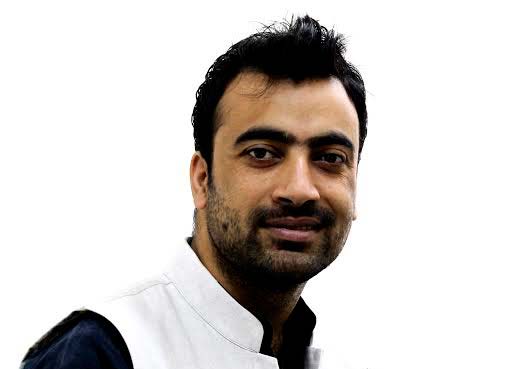Basharat Ali
 Last week parts of North Kashmir were literally cut-off from the rest of the world; at least in the sense we understand interconnectedness in the era of globalisation. This condition has been fed to us in two ways by media in Kashmir, while the Indian media rather surprisingly chose to overlook the issue. Most of the newspaper reports have uncritically termed it as a communications breakdown and a very few have described it fittingly as communication blockade.
Last week parts of North Kashmir were literally cut-off from the rest of the world; at least in the sense we understand interconnectedness in the era of globalisation. This condition has been fed to us in two ways by media in Kashmir, while the Indian media rather surprisingly chose to overlook the issue. Most of the newspaper reports have uncritically termed it as a communications breakdown and a very few have described it fittingly as communication blockade.
The killing of one BSNL employee in Sopore and attacks on couple of other locations by a hitherto unknown group, which calls itself as Lashkar-e-Islam, resulted into the disruption of mobile telecommunications in Sopore and adjacent areas. But the network would not vanish on its own unless some agency decides to shut the towers down. In this case it can either be the government or service providers themselves who can cause the blockade.
The state propagandists, however, wanted people to believe that the group mindlessly attacking towers and spreading panic through letters stopped the functioning of their mobile phones. That these ‘militants’ wanted the mobile towers shut and the government and service providers just did that, like good obedient employees.
Since when did states start doing what non-state actors, “terrorists”, want them to do? If the state narrative is to be believed, that these were militants, funded by Pakistan and supported by groups in Kashmir (which is a common thread in Indian state discourse), then the logic says the state should grant them other things too for which they fight, spread “terror” and kill people. People should be given Azadi.
Last year Kashmir witnessed targeted killings of Sarpanchs. Over a dozen Sarpanchs were killed. People were asked to stay away from Panchayat elections but the government offered security to people contesting these elections. However, this time, it took a different course of action. Instead of providing security to people associated, the government decided to stop the service which caused huge loses to business and problems to people in general.
The mobile phone technology came to Kashmir in 2004 and since then never came under attack by the militants. The disruptions, like the ban on SMS, the ban on pre-paid connections for some time, are all doings of the state – the government.
If the story of loss of some device installed by militants in Sopore is true then a communication blockade would only benefit the state and not the militants. The intelligence and police must have evaluated the possibility of more similar devices which may have been installed in similar fashion in other areas. In such a situation the only viable option to disrupt the functioning of these devices is to cut-off the power supply which would also mean disruption in mobile network.
Various reports suggest that this particular device helped the militants stay out of the tapping radar of the police and helped them communicate more effectively. When the police and other security agencies could not trace militants (indicated by a relatively less number of militant deaths in Sopore in past few months), causing the communication blockade may well have been engineered by the state to chase militants out of their hideouts particularly in Sopore which has seen comparatively high activity of militants ever since the rise of insurgency against the Indian rule in Kashmir.
In such a bizarre turn of events, people in North Kashmir seem to have held their nerve. They appear to not have succumbed to the propaganda that militants are forcing them back to ‘stone-age’.
(Graduate in Peace and Conflict Studies from renowned Nelson Mandela Peace and Conflict Studies Centre – Jamia Millia Islami, New Delhi, the author can be contacted at: [email protected])
Note: The views expressed in this article are the author’s own and do not necessarily reflect Kashmir Life’s editorial policy.















